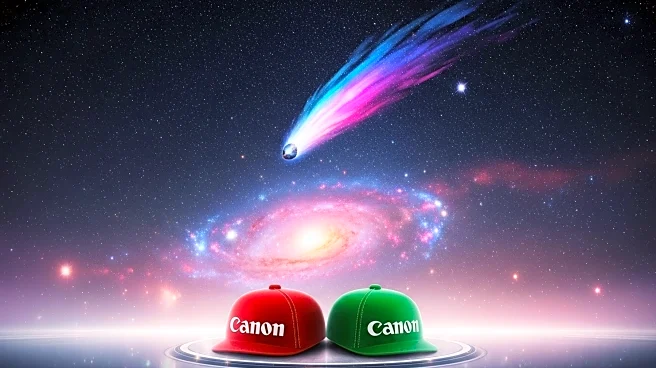What's Happening?
Nintendo has released Super Mario Galaxy and Super Mario Galaxy 2 on the Switch, and the reviews are overwhelmingly positive. Critics have praised the games for their creativity and platforming excellence, with VGC awarding a perfect score of 5/5, despite minor issues with the new gyro aiming. GAMINGbible also gave a 10/10, calling the games 'the perfect package' with only minor touchups. Destructoid rated the bundle 9/10, noting the high price but acknowledging the games as masterpieces. TechRadar gave a 4.5/5, appreciating the upgraded visuals and new story content, while TheGamer rated it 4/5, citing the price and outdated mechanics as drawbacks. Overall, the release is seen as a definitive way to experience these classic Mario adventures.
Why It's Important?
The release of Super Mario Galaxy and Super Mario Galaxy 2 on the Switch is significant for Nintendo and the gaming industry. These games are considered some of the best platformers ever made, and their availability on the Switch allows a new generation of gamers to experience them. The positive reviews reinforce Nintendo's reputation for high-quality game design and innovation. However, the criticism regarding the price highlights ongoing concerns about the cost of gaming and the value offered by remastered editions. This release could influence future decisions by Nintendo and other companies regarding pricing strategies and the inclusion of new content in remastered games.
What's Next?
As the games are now available, Nintendo may monitor sales and feedback to assess the success of the release. The company could consider adjustments in pricing or additional content updates based on consumer reactions. The positive reception might encourage Nintendo to continue remastering other classic titles for the Switch, potentially expanding their library and appealing to nostalgic gamers. Additionally, the feedback on gyro aiming and mechanics could lead to improvements in future releases or updates.
Beyond the Headlines
The release of these games also touches on broader themes in the gaming industry, such as the balance between nostalgia and innovation. While remastering classic games can be profitable, it raises questions about the value of new content versus preserving original experiences. The pricing debate reflects larger economic trends in gaming, where consumers are increasingly scrutinizing the cost versus the content offered. This could lead to shifts in how companies approach remastering and pricing strategies.









